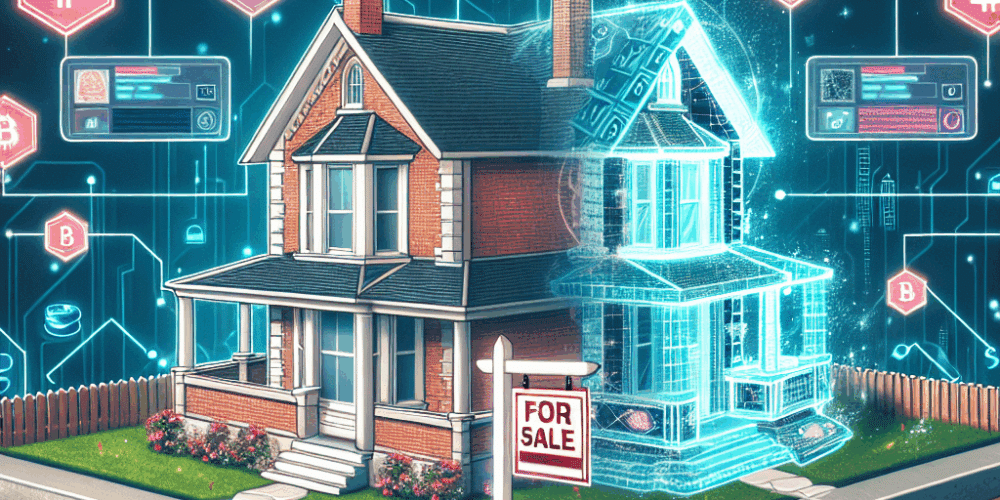In an unprecedented shift within the real estate industry, blockchain technology is now being harnessed to streamline property transactions and enhance transparency, heralding a new era in how property sales are conducted globally. A recent pilot project in Dubai has successfully demonstrated the efficacy of smart contracts in real estate dealings, potentially setting the stage for a worldwide transformation in property markets.
The pilot project, a collaboration between the Dubai Land Department and a blockchain startup, successfully processed real estate transactions using blockchain-based smart contracts. This innovative approach has significantly reduced transaction times, slashed processing costs, and improved security, effectively addressing some of the most pressing concerns in real estate transactions today.
How Blockchain is Transforming Real Estate Transactions
Traditionally, buying and selling property involves multiple parties, including brokers, lawyers, and banks, and requires a significant amount of paperwork, which can be costly and time-consuming. Blockchain technology simplifies this process through smart contracts—self-executing contracts with the terms of the agreement between buyer and seller directly written into lines of code.
The Dubai pilot project showcased the practical application of these contracts, where all terms were agreed upon and verified digitally, minimizing the need for human intervention and dramatically speeding up the process. For instance, property ownership transfers, which typically take weeks or even months, were completed in just a few days.
Benefits for Stakeholders
The transition towards blockchain in real estate not only streamlines transactions but also provides numerous benefits for all stakeholders involved. Buyers and sellers enjoy greater transparency as every aspect of the transaction is recorded on the blockchain, which is immutable and tamper-proof. This significantly reduces the potential for fraud and errors, providing peace of mind for all parties.
Moreover, the elimination of intermediaries in blockchain transactions cuts down on commission fees, legal costs, and other transaction expenses, potentially saving buyers and sellers thousands of dollars. For real estate professionals, adopting blockchain technology allows them to offer faster, more efficient service, which could lead to increased customer satisfaction and loyalty.
Global Potential and Future Prospects
The success of the Dubai project has not gone unnoticed, with several countries now exploring similar blockchain initiatives. In the United States, certain states have passed legislation to recognize and regulate the use of blockchain technology in real estate. This regulatory backing is likely to accelerate the adoption of blockchain in property transactions across the country.
Experts predict that as more real estate markets adopt blockchain technology, we could see a global shift towards more standardized, efficient, and secure property transactions. This could have profound implications for international real estate investments and open up new opportunities for cross-border property portfolios.
Challenges and Considerations
Despite the clear benefits, the integration of blockchain into real estate also presents certain challenges. One of the primary concerns is the digital divide; not all parties in real estate transactions are tech-savvy, and there could be a learning curve associated with adopting new technologies.
Additionally, while blockchain enhances transaction security, it also raises questions about data privacy and management, especially under differing international regulations such as the GDPR in Europe. Real estate businesses and policymakers will need to address these issues to fully harness the benefits of blockchain technology.
The Road Ahead
The promising results from Dubai are just the beginning of what may be a fundamental shift in real estate transactions worldwide. As blockchain technology continues to evolve and more stakeholders recognize its potential benefits, the real estate industry could see unprecedented levels of transparency, efficiency, and security.
This new approach to handling property transactions through blockchain and smart contracts might soon become the norm, transforming the landscape of real estate into a more secure, trustworthy, and efficient market for generations to come. As we move forward, the key to success will be educating all parties involved, ensuring regulatory support, and continuously improving the technology to meet the dynamic needs of the real estate market.




